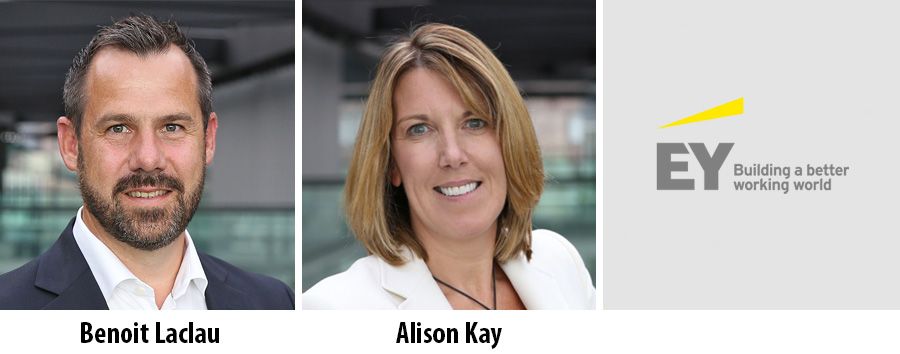EY has launched ambitious growth plans within its consulting practice. Over the coming four years, a £75 million investment will see the practice expand its UK and Ireland team with more than 5,000 consultants.
While EY is traditionally referred to as an ‘accounting firm’, the professional services giant has a diverse offering of service lines – many of which are fast gaining ground on its historical bread and butter work.
Alongside its assurance, tax and transaction services, EY provides the full breadth of management consulting services, from strategy and operations to change management and systems implementation.

In late 2021, the global entity of EY reported its annual results – and revealed just how important advisory services have become to its financial success. While assurance remains the firm’s single largest service line – bringing in more than $13.5 billion worldwide – consulting revenues have grown faster, consistently.
With a seven-year CAGR of 7.6%, compared to assurance’s 4.2%, consulting now makes up $11.1 billion of EY’s global revenues. And that is without considering the revenues brought in by its booming strategy advisory brand, EY-Parthenon – which falls within the firm’s Strategy and Transactions business.
Facing booming demand for its services, EY plans to raise its consulting headcount from 5,100 to around 10,200 people by 2026.
Fuelled by increasing demand from clients implementing large scale strategic transformation programmes, enabled by technology, data, and people, the new recruits will reinforce the firm’s existing strengths across finance, risk, supply chain, change management, cultural transformation, and strategy – while boosting skills in areas including software systems, cloud, data analytics and cyber.
Benoit Laclau, Managing Partner for Consulting at EY in the UK & Ireland, remarked, “Our clients are looking for deep technical support to help transform their businesses and future-proof their strategy. This typically involves the implementation of new technology and often large-scale cultural change across their organisation.”
Laclau added that strong market demand for consulting services had given EY confidence to invest at scale. Having already sunk £95 million into the growth, EY’s UK & Ireland wing will spend a further £75 million in 2022 alone.
With competition in the labour market for top talent heating up, the firm is aware it will need to put those resources to good use, and recruit diverse talent across the two countries, regardless of where they are based, while Laclau also noted the firm would be “promoting flexible and hybrid working to attract talented individuals” to stand out from the crowd.
A part of the funds will be used for inorganic growth, with EY currently the most active of the Big Four in UK’s M&A consulting scene. Last week, EY acquired Irish technology consultancy Client Solutions, and in 2021, the Big Four closed four deals in the UK & Ireland alone.
Beyond London
More than half of the new roles will be based outside of London. This will see EY look to grow its teams throughout cities including Manchester, Glasgow, Edinburgh, and Birmingham.
The recruitment will also look to boost social mobility throughout the UK and Ireland. The Big Four firm will be recruiting across all levels, from partner level through to graduates and school leavers.
Alongside the professional qualification courses for relevant employees, such as Chartered Accountant (ICAEW), Chartered Management Accountant (CIMA), and Chartered Management Consultant (CMI) qualifications) – EY will also give its new arrivals the opportunities to take a number of Masters courses developed with Hult International Business School, at no cost to the individual.
Alison Kay, EY UK and Ireland Managing Partner for Client Service, who is spearheading EY’s UK & Ireland consulting growth plan, said, “At EY, we are investing heavily to upskill and expand our workforce, to meet the demand from businesses embarking on transformation projects, to ensure they remain competitive, keep pace with change, and navigate ongoing market challenges.”




